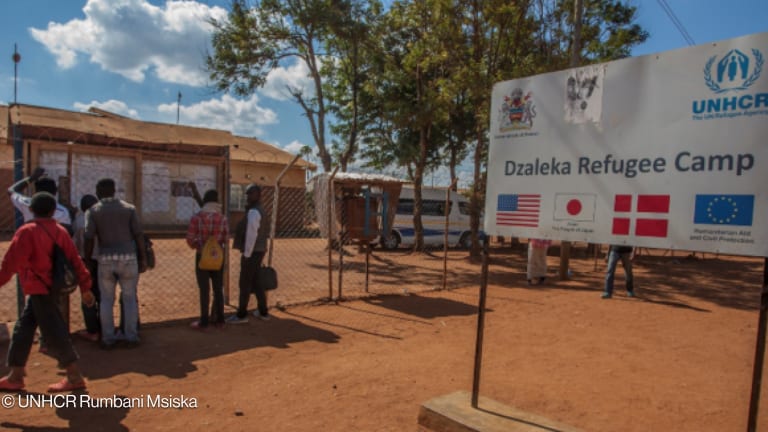
A significant overhaul in policy is required if the United States is to adequately respond to the global challenges posed by climate-induced displacement and migration, according to a new report from Refugees International.
The report recommends that the U.S. focus on lowering the impact of natural disasters on communities and investing in climate change adaptation, as well as adopting new resettlement, visa, and coordination policies to protect people who will be displaced. “The United States has a special responsibility to lead on issues of climate change, migration, and displacement,” it states.
In 2020, weather-related disasters displaced more than 30 million people worldwide, the Internal Displacement Monitoring Centre found. That is three times more than the number of people displaced by conflict, and the problem is only expected to grow. By 2050, 143 million climate migrants could be displaced within their own countries across sub-Saharan Africa, South Asia, and Latin America and the Caribbean, according to the World Bank.
“The notion that we’re recommending something for the United States to do [on climate-induced displacement and migration] that nobody has ever done is just not true. We would be a follower on this issue.”
— Eric Schwartz, president, Refugees InternationalRefugees International President Eric Schwartz described projections for the number of people who may be forced to migrate because of climate impacts as “sobering.”
“But they’re not beyond the capacity of governments and the international community to address effectively and humanely,” said Schwartz, who was the assistant secretary of state for population, refugees, and migration during the administration of former U.S. President Barack Obama, at an event launching the report. “We hope this report will contribute to the overall effort to promote the will and the capacity to achieve this outcome.”
The report aims to make recommendations to U.S. President Joe Biden’s administration following a February executive order that called for the country to prepare its refugee resettlement programs amid climate change. That order required a report within 180 days on the national security implications of climate-related migration, how individuals displaced directly or indirectly by climate change should be protected or resettled, how U.S. foreign assistance can mitigate negative impacts of climate change, and how international cooperation can be used to respond.
Refugees International intends its own report to influence both the formal White House report and the policy the administration ends up pursuing for climate migration.
The current state of global warming — with predictions anticipating a rise in temperature of up to 3.1 degrees Celsius by the end of the century if policies do not change — as well as the United States’ moral responsibility as a leading carbon emitter, mean the Biden administration must adopt new policies to improve conditions for the millions who may be forced to migrate due to factors beyond their control, concluded the Refugees International task force behind the report.
This includes considering protections for people who must flee their homes but do not otherwise meet the traditional definition of “refugee” and thus don’t have protections under international law.
“As a former U.S. government official, we often walked around thinking that we were in the lead on everything. But sometimes we’re not. And in fact, maybe often we’re not. And in this area of complementary protection, I think other parts of the world are well ahead of the United States,” Schwartz said, referring to protection mechanisms outside the 1951 Refugee Convention. “The notion that we’re recommending something for the United States to do that nobody has ever done is just not true. We would be a follower on this issue. But we ought to be a leader.”
Significant financing will be required to deliver on the agenda recommended in the report. The U.S. should increase its support for global disaster risk reduction by over $500 million — to reach $1 billion annually — and support a new fund to finance it. A total of up to $4 billion is also needed to fund international climate change programs to help communities in affected countries.
“There is a dedicated movement to localized funding which acknowledges that local actors must be a part of the decision-making process and money-managing process,” said Kayly Ober, project director of the task force. “Not only is the amount of financing crucial, but the ability for it to reach those who need it most is as well.”








